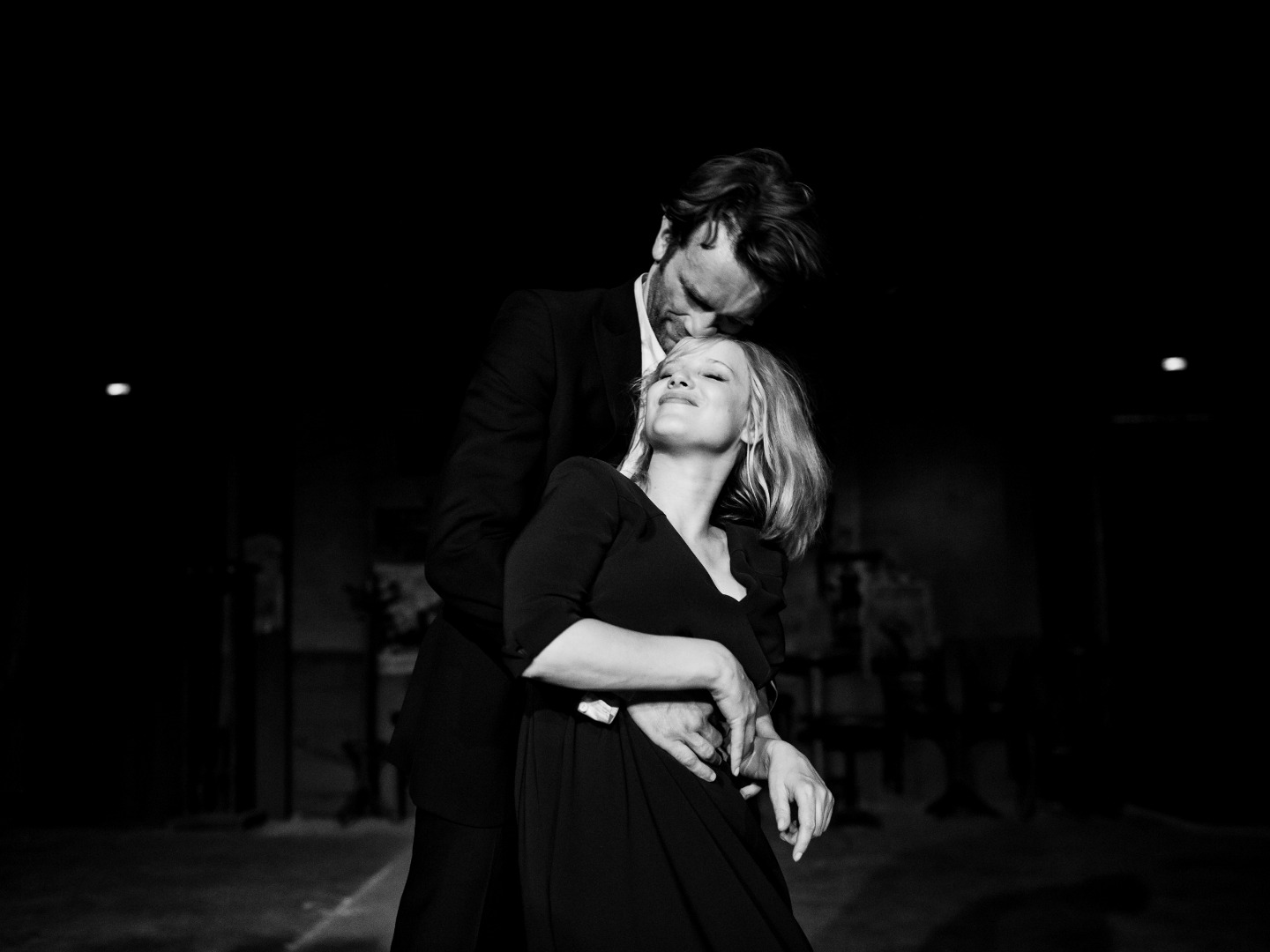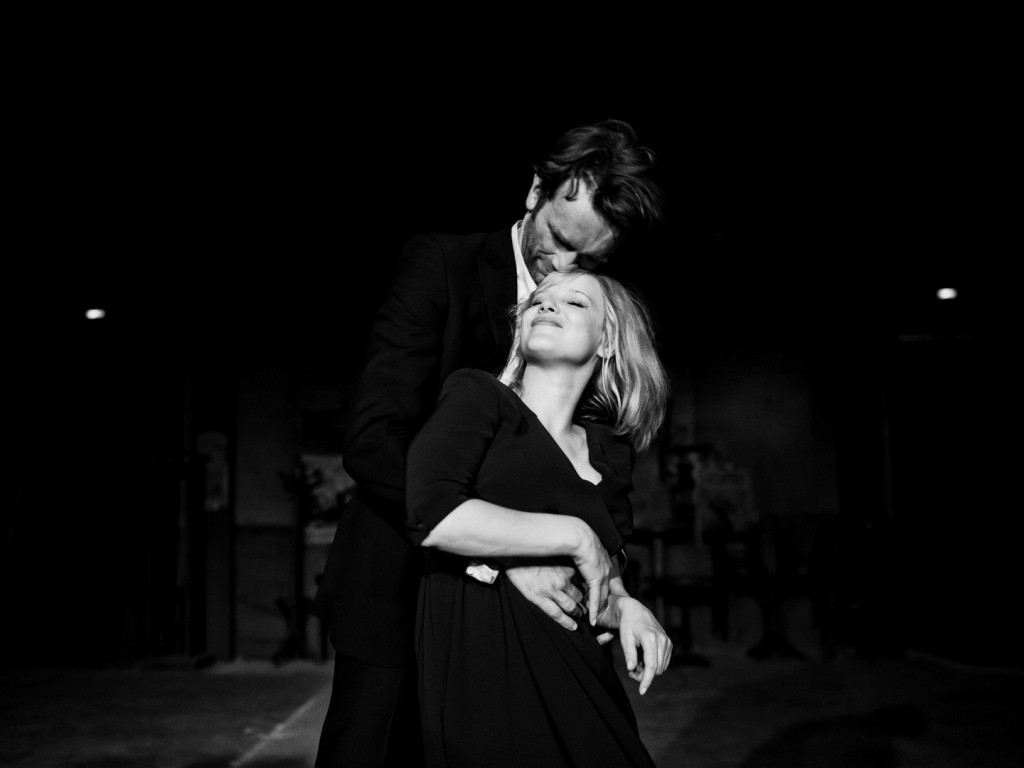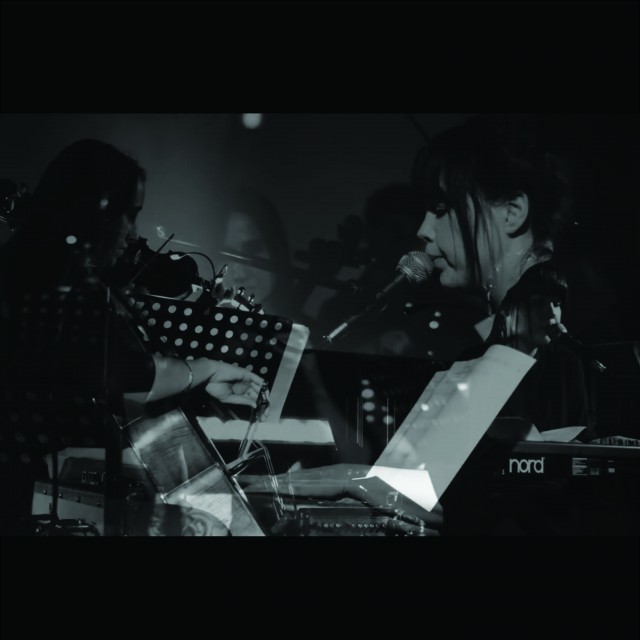The crystalline Ida (2013), about a novitiate nun in 1960’s Poland, whose discovery of a family secret provided a window into her country’s dark heart, helped establish Pawel Pawlikowski as a critical favourite, and a film-maker adept at using classical cinematic beauty to express historical discontent.
His follow-up, Cold War, dedicated to Pawlikowski’s parents, is not explicitly religious in the same way. Set in Poland, just as the World War shifts into the Cold one, the film’s first and only strikingly denominational image is the bombed-out dome roof of a church. Most of the story takes place on the other side of the Iron Curtain, in nightlife spaces of cosmopolitan enlightenment.
But the devotional impulse isn’t far off. The anguished, ecstatic romance of Zula (Joanna Kulig) and Wiktor (Tomasz Kot) seems guided by the pull of mystery, by secret, immutable laws of heart and nation. By — perhaps — providence.
Wiktor and two colleagues are touring the muddy Polish countryside, recording peasant songs of earth, poverty and broken hearts. At a state home, still damaged from the war, they build and train a travelling company of singers and dancers, with the aim of reclaiming Polish dignity, of broadcasting the beautiful sounds of a devastated people. One of the performers, the spirited, glamourous, younger Zula, catches Wiktor’s eye, and a clandestine romance blooms.
While the two unlikely lovers become more enmeshed, the successful company catches the eye of the Soviet authorities, who insist on songs about the Proletariat and the Great Leader. In one of its many stunning arrangements — Pawlikowski shoots in still, boxed monochrome frames, which gives everything the formality of recollection — portraits of Stalin and Lenin loom over the stage show. Not for the only time in the film, pure intentions are subject to interference and compromise.
When the company is sent to Berlin, still divided between Axis and Soviet powers, Wiktor proposes a daring bolt into Western territory. He waits until dark, but Zula, unsure and unable, stays at the reception, shot through with despair. He leaves, initiating a string of separations and reunions borrowed from the epics.
Cold War is a love story about love as the only story.
The film jolts forward in time and place — Poland, Paris, Yugoslavia, Paris again, Poland again — as the lovers fall in and out of eachother’s grasp. We find Wiktor in the French capital, making a living as a composer and musician in the city’s clubs. He sits at the edge of the bar until closing time, one eye on the door. He’s probably kept this routine up every night since he last saw Zula. “Whoever you’re waiting for, she isn’t coming,” cautions the bartender, but the hinges creak and — my word! — there she is.
Zula is miserable without her love and, eventually, miserable with him. The unshackled energies of post-war France give her everything: music, cafes, restaurants and tinkling parties with artistic types. A shot of her and Wiktor in their flat is the picture of bohemian satisfaction: him lying on the floor, marking up music sheets, her in a chair, bent over lyrics for her record. But she’s jealous about an ex-girlfriend, and they bicker. In nightclubs she throws the drink down her and dances to the furious new beats of American rock’n’roll.
Their abandoned home country exerts an irrational, unexplainable pull. The music of their lost troupe is threaded through the movie, a sort of subconscious siren song.
In the company’s beginnings, the administrative manager frames traditional Polish music as “songs of pain and humiliation”, which may as well be a description of love itself. The film’s cycles of freedom and servitude, escape and imprisonment, disturb straightforward Western framing of fuzzy feelings as a means of liberation.
Swooning, brooding and pristine, Cold War is, at the same time, one of the year’s most romantic and cynical films. Love is, in the film’s final analysis, a problem that cannot be solved. Conor Smyth
Cold War is finishing its limited release tonight at the Irish Film Institute.






